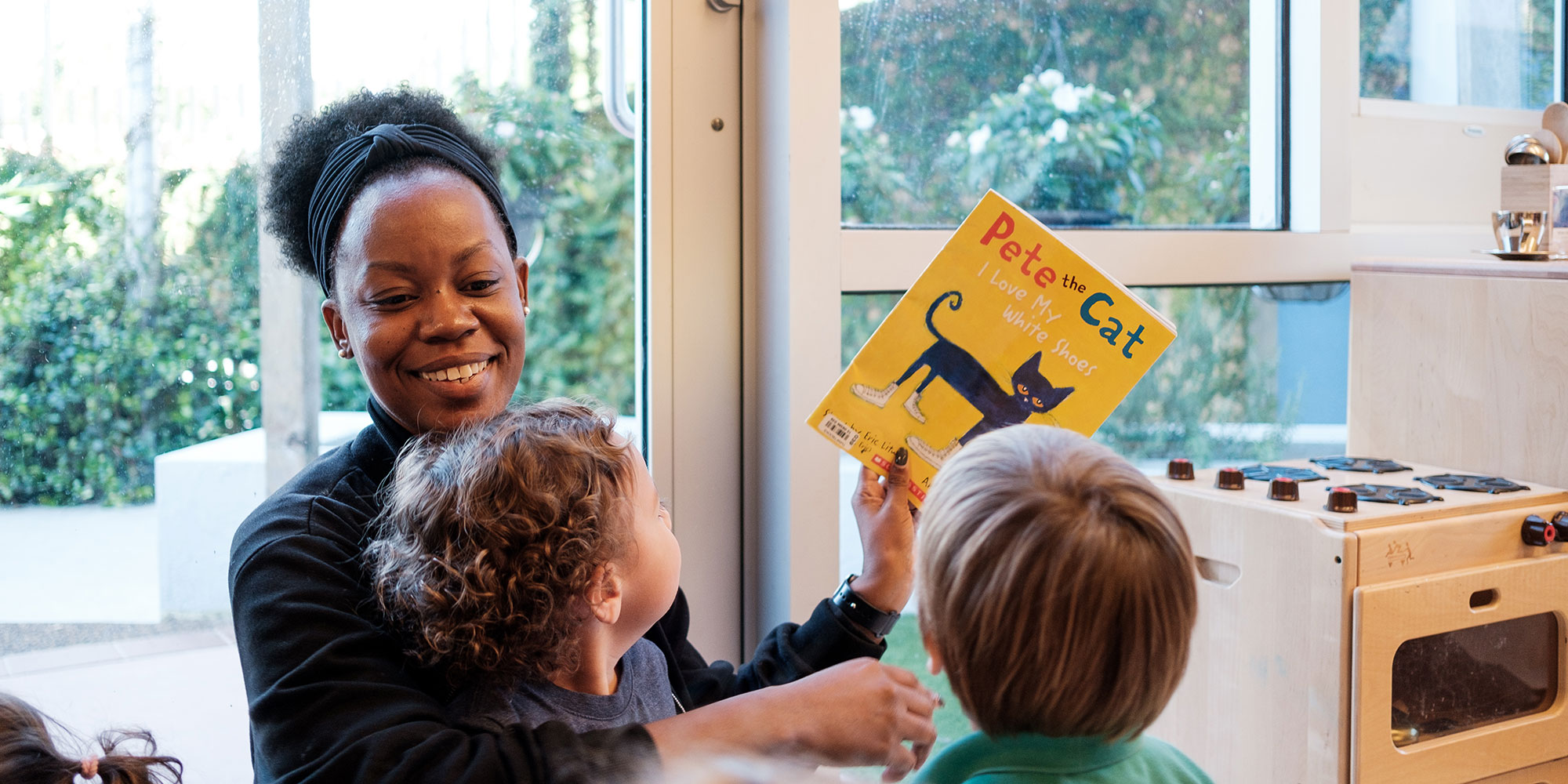Literacy Starts at Birth.
This legislative session, the state of Florida is emphasizing the importance of literacy for K-12 students.
We know literacy starts at birth, and this campaign aims to raise awareness about early literacy.
Early literacy is the development of skills children need to transition from learning to read to reading to learn. These skills include vocabulary, phonics, language, and numeracy, to name a few.
Children who master these early literacy skills and are reading proficiently in the early grades are more likely to graduate high school and enroll in college.
That’s why it’s so important to support parents of young children. The more we help children start strong, the better off they will be in the long run.
Two things you can do today:
Contact your legislator
Let your legislator know you care about this issue and want them to think early literacy when they are talking about literacy.
Share this campaign on social media.
Please feel free to share these images and captions with your followers to spread the word about how they can build early literacy in the little ones in their lives.
Tag us @ChildMovementFL on Twitter and Instagram and @ChildrensMovementFL on Facebook and use the hashtag #ForFloridaChildren in your caption so we can amplify your post!
Below is a sample caption for your use:
Did you know that it is legislative session in Florida? Until April 30, our lawmakers are voting on issues important #ForFloridaChildren, and we can make an impact! Check out @ChildMovementFL’s campaign about #earlyliteracy to learn more! http://bit.ly/EarlyLitFL2021
Literacy Starts at Birth
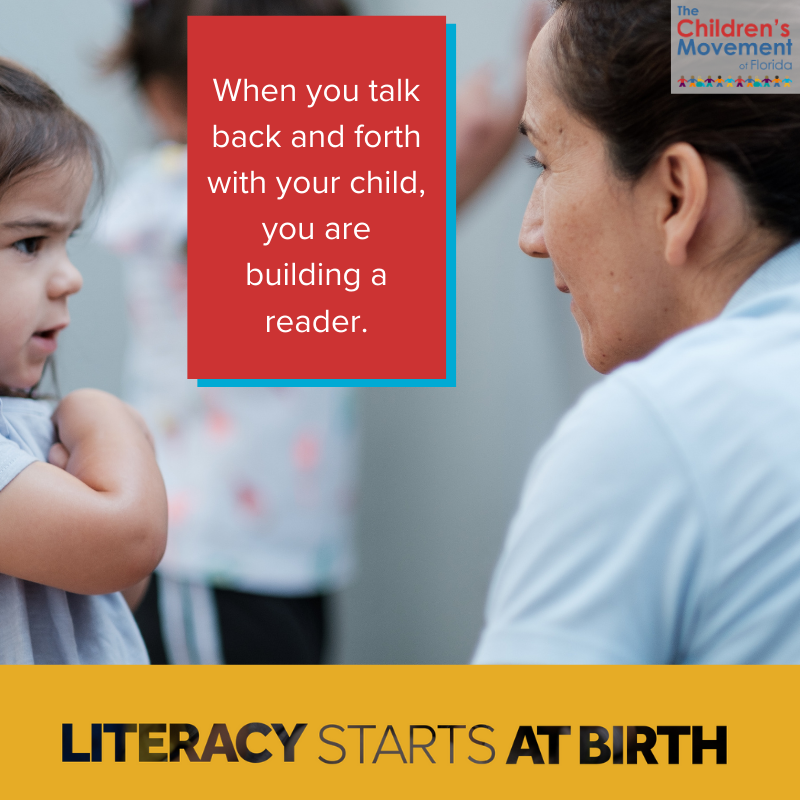
When you talk back and forth with your child, you are building a reader.
Talking back and forth with your child builds a reader because it allows them to hear lots of sounds and words, which is the basis for learning language and the best predictor of later reading skills.
When you build a reader, you encourage early literacy. Early literacy is the development of skills children need to transition from learning to read to reading to learn. These skills include vocabulary, phonics, language, and numeracy, to name a few.
Children who master these early literacy skills and are reading proficiently in the early grades are more likely to graduate high school and enroll in college.
That’s why it’s so important to support parents of young children. The more we help children start strong, the better off they will be in the long run.
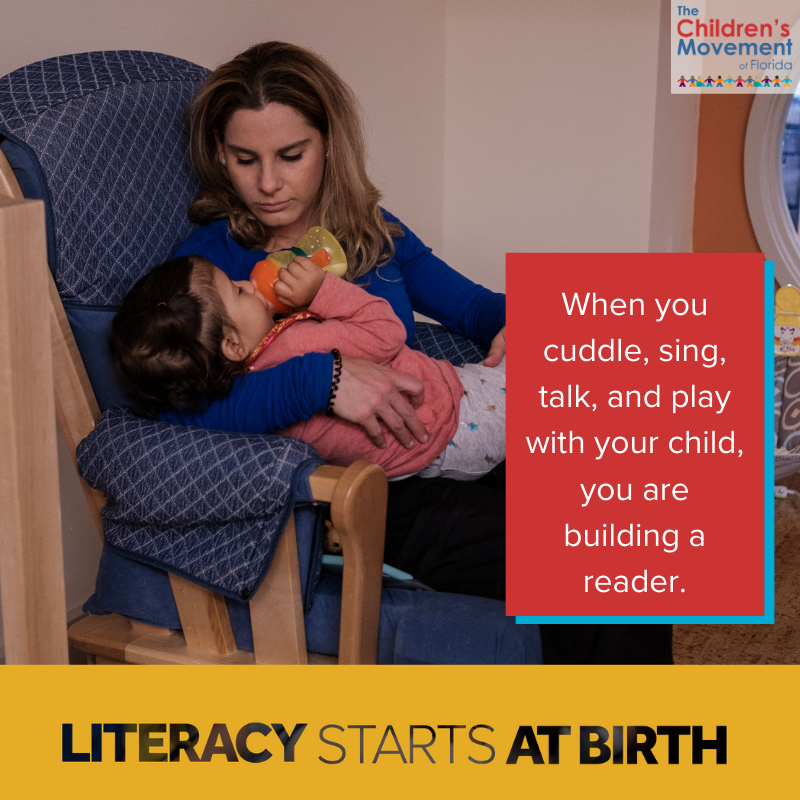
When you cuddle, sing, talk and play with your child, you are building a reader.
Cuddling, singing, talking, and playing with your child builds a reader because it promotes healthy social-emotional development and provides an opportunity for learning words, grammar patterns, and rhythms. It also introduces the world of reading as something that is fun.
When you build a reader, you encourage early literacy. Early literacy is the development of skills children need to transition from learning to read to reading to learn. These skills include vocabulary, phonics, language, and numeracy, to name a few.
Children who master these early literacy skills and are reading proficiently in the early grades are more likely to graduate high school and enroll in college.
That’s why it’s so important to support parents of young children. The more we help children start strong, the better off they will be in the long run.
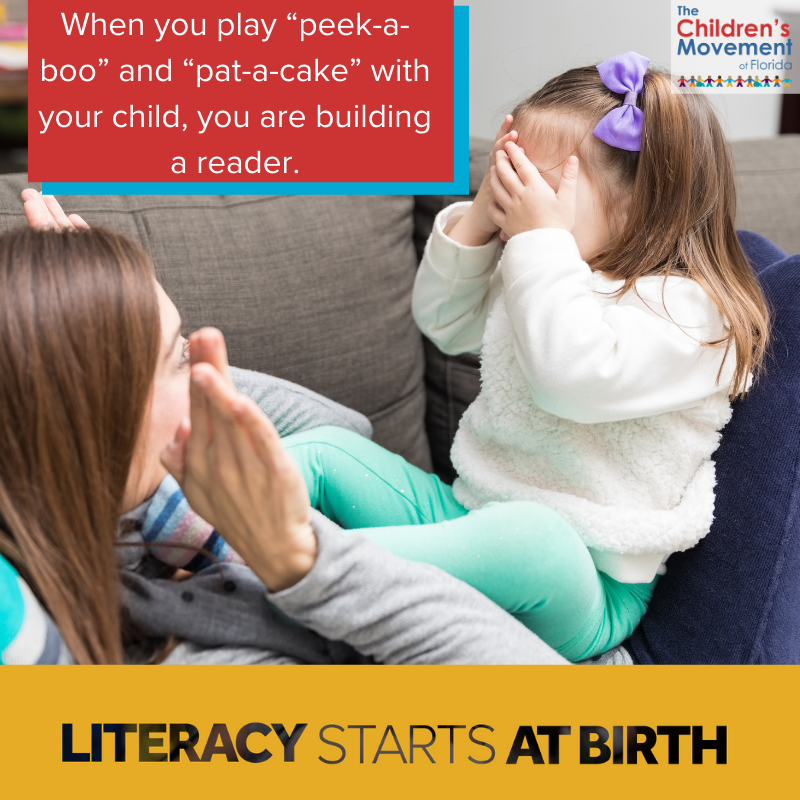
When you play "peek-a-boo" and "pat-a-cake" with your child, you are building a reader.
Playing “peek-a-boo” with your child builds a reader because it allows them to understand the “rules” of language and allows them to “read” the expressions on your face as you speak and play with them. It also helps teach object permanence: the pages in a book, like other things in life, do not go away when you cannot see them.
Playing “pat-a-cake” with your child builds a reader because it exposes them to rhyming words and exposes them to the sounds in our language, promoting phonemic awareness, a key component to literacy skills.
When you build a reader, you encourage early literacy. Early literacy is the development of skills children need to transition from learning to read to reading to learn. These skills include vocabulary, phonics, language, and numeracy, to name a few.
Children who master these early literacy skills and are reading proficiently in the early grades are more likely to graduate high school and enroll in college.
That’s why it’s so important to support parents of young children. The more we help children start strong, the better off they will be in the long run.

When you use books to calm or distract your child while waiting, you are building a reader.
Using books to calm or distract your child while waiting builds a reader because it stirs imagination and creativity, helps build focus, and is another opportunity to create a fun, safe environment around reading.
When you build a reader, you encourage early literacy. Early literacy is the development of skills children need to transition from learning to read to reading to learn. These skills include vocabulary, phonics, language, and numeracy, to name a few.
Children who master these early literacy skills and are reading proficiently in the early grades are more likely to graduate high school and enroll in college.
That’s why it’s so important to support parents of young children. The more we help children start strong, the better off they will be in the long run.
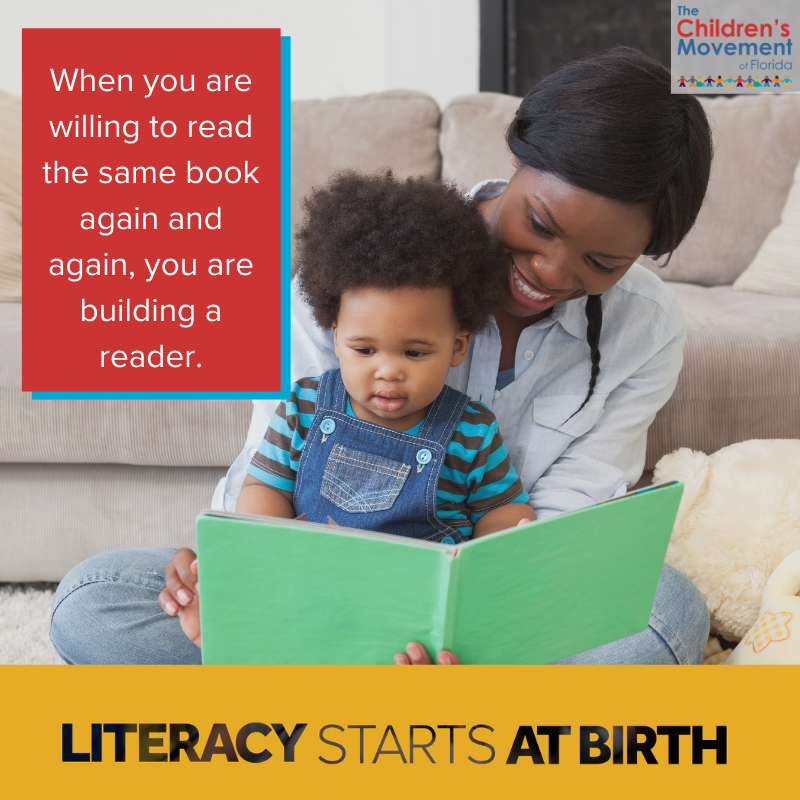
When you are willing to read the same book again and again, you are building a reader.
Reading the same book again and again with your child builds a reader because it brings the child’s awareness to patterns and rhythms, and it supports vocabulary recognition.
When you build a reader, you encourage early literacy. Early literacy is the development of skills children need to transition from learning to read to reading to learn. These skills include vocabulary, phonics, language, and numeracy, to name a few.
Children who master these early literacy skills and are reading proficiently in the early grades are more likely to graduate high school and enroll in college.
That’s why it’s so important to support parents of young children. The more we help children start strong, the better off they will be in the long run.
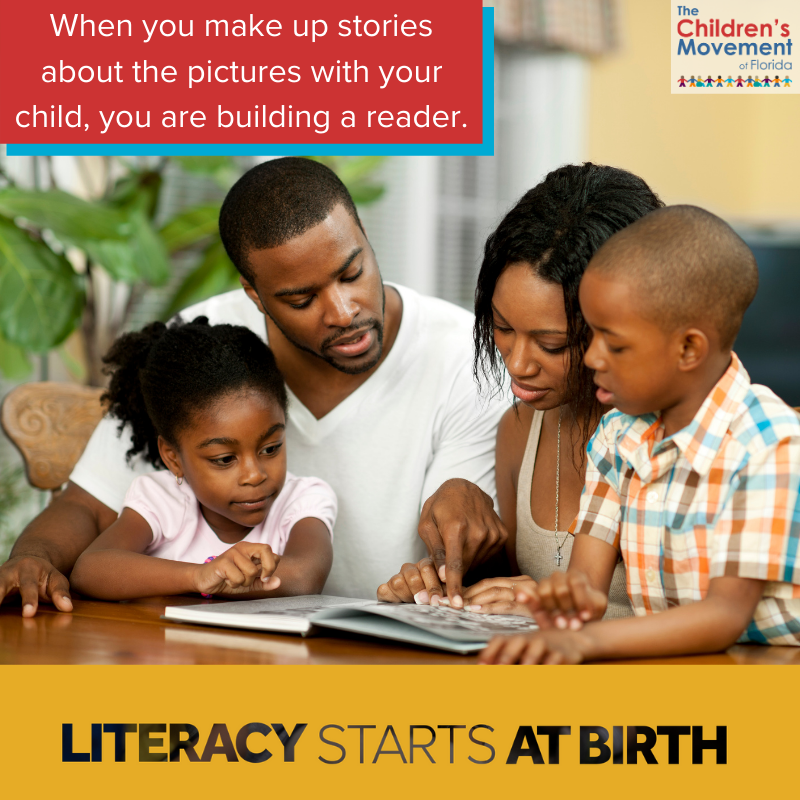
When you make up stories about the pictures with your child, you are building a reader.
Making up stories about the pictures with your child builds a reader because using pictures to tell stories promotes reading skills. Telling stories based on what they are seeing helps children understand print as symbols.
When you build a reader, you encourage early literacy. Early literacy is the development of skills children need to transition from learning to read to reading to learn. These skills include vocabulary, phonics, language, and numeracy, to name a few.
Children who master these early literacy skills and are reading proficiently in the early grades are more likely to graduate high school and enroll in college.
That’s why it’s so important to support parents of young children. The more we help children start strong, the better off they will be in the long run.
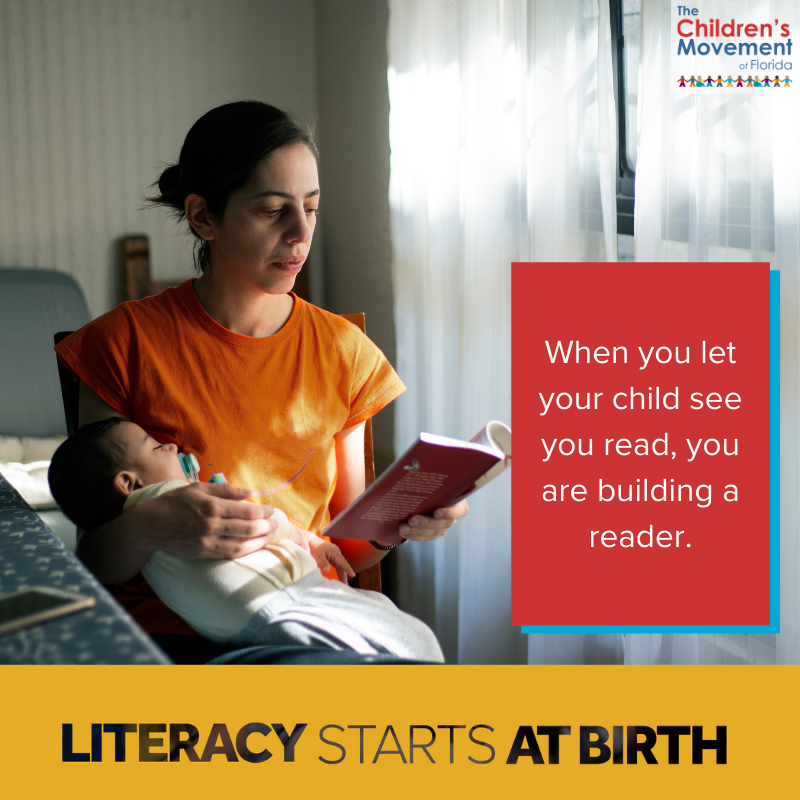
When you let your child see your read, you are building a reader.
Letting your child see you reading builds a reader because when you model reading, the child sees reading as interesting and important.
When you build a reader, you encourage early literacy. Early literacy is the development of skills children need to transition from learning to read to reading to learn. These skills include vocabulary, phonics, language, and numeracy, to name a few.
Children who master these early literacy skills and are reading proficiently in the early grades are more likely to graduate high school and enroll in college.
That’s why it’s so important to support parents of young children. The more we help children start strong, the better off they will be in the long run.
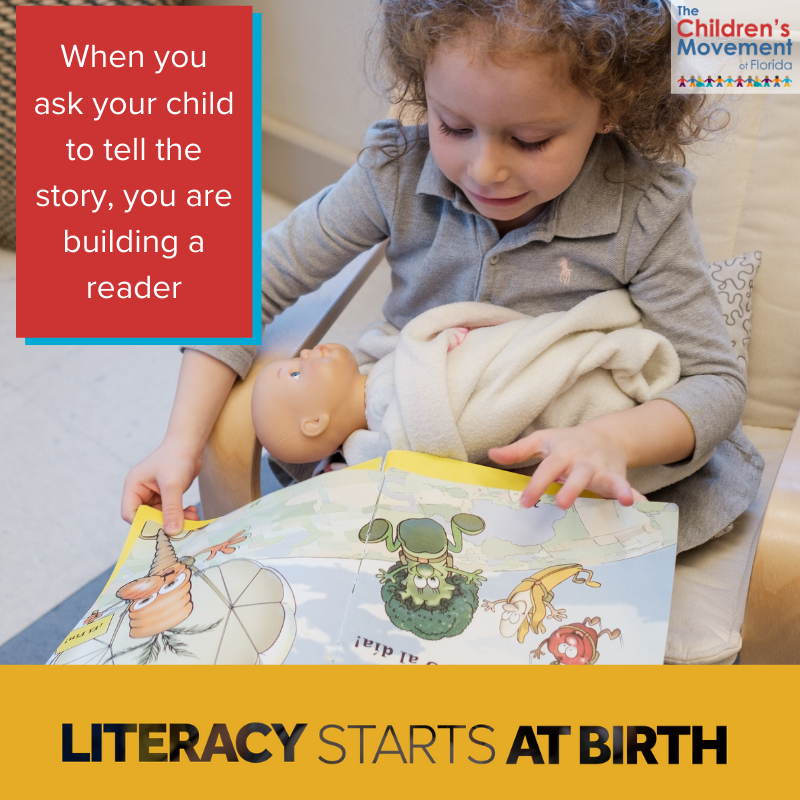
When you ask your child to tell the story, you are building a reader.
Asking your child to tell a story builds a reader because it teaches them to use visual cues as a reading strategy, and it allows the child to get a feel for the flow of the story so they can better comprehend and enjoy it.
When you build a reader, you encourage early literacy. Early literacy is the development of skills children need to transition from learning to read to reading to learn. These skills include vocabulary, phonics, language, and numeracy, to name a few.
Children who master these early literacy skills and are reading proficiently in the early grades are more likely to graduate high school and enroll in college.
That’s why it’s so important to support parents of young children. The more we help children start strong, the better off they will be in the long run.
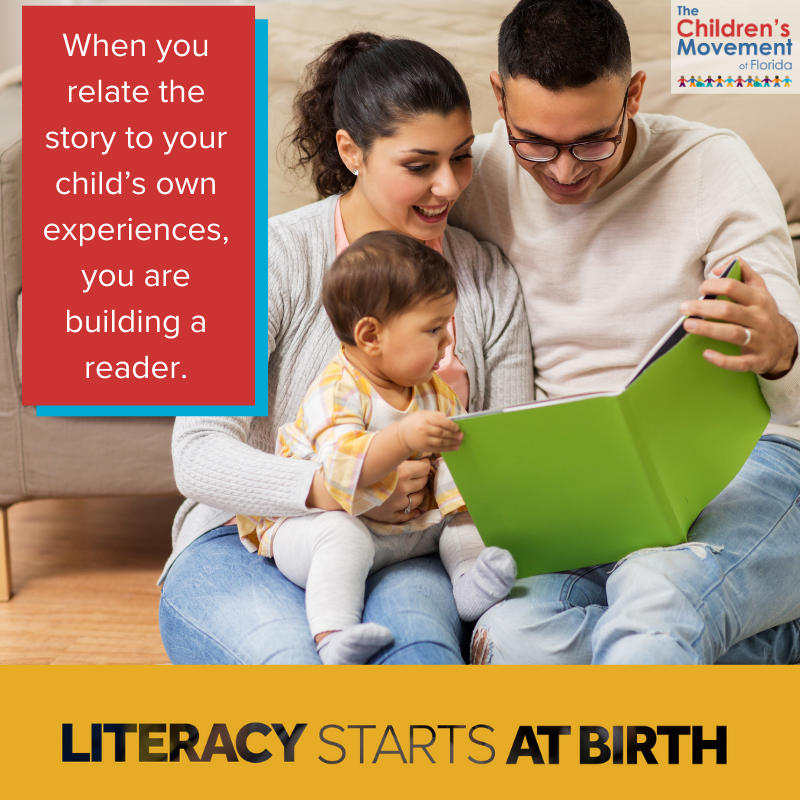
When you relate the story to your child's own experiences, you are building a reader.
Relating your child’s own experiences to the story builds a reader because it is more likely that they will understand the story, remember it, and enjoy it when they relate to what they are reading.
When you build a reader, you encourage early literacy. Early literacy is the development of skills children need to transition from learning to read to reading to learn. These skills include vocabulary, phonics, language, and numeracy, to name a few.
Children who master these early literacy skills and are reading proficiently in the early grades are more likely to graduate high school and enroll in college.
That’s why it’s so important to support parents of young children. The more we help children start strong, the better off they will be in the long run.
